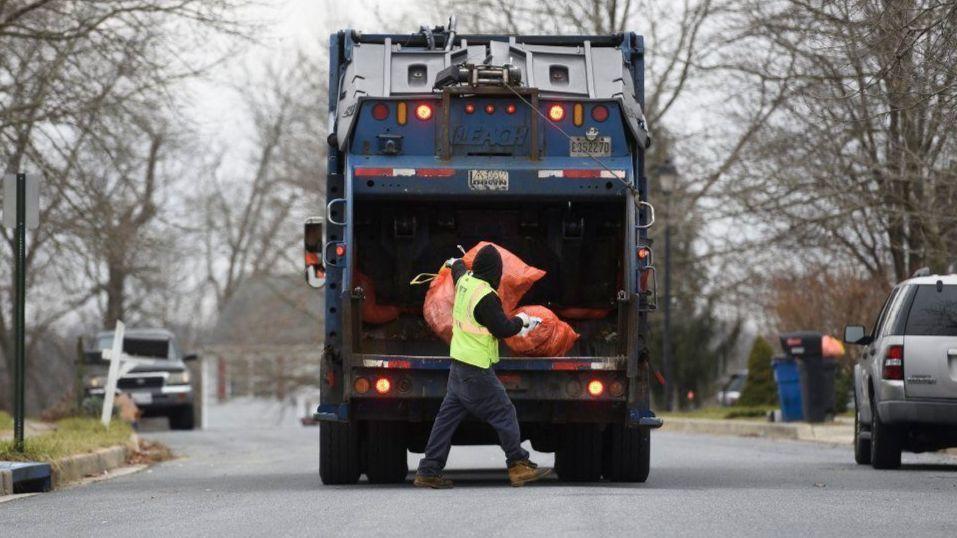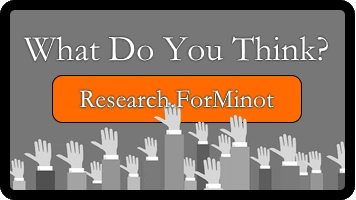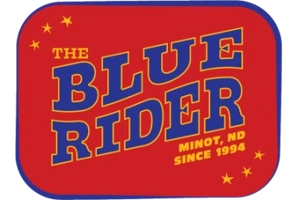Landfill expansions, recycling, service days and rates, single-use plastic — they’re all topics that have been front and center for the City of Minot over the past year. That’s appropriate — there are few things more central for a municipality than garbage removal.
And it’s on that topic that this story from Maryland is relevant half-way across the country. What are the policy tools that may play into how we the people manage our trash streams? One method that’s working at making people think about what they consume — and thus throw away — is a pay as you throw rate system.
Of course, a pay-as-you-throw structure will seem radical in Minot. It’s because not too long ago that we could put anything we wanted on the street and the City would pick it up and take it away. But that system wasn’t financially sustainable, and it certainly didn’t incentivize responsible behavior from we the people.
But it invites the question, if we the government want we the people to change behavior — like maybe be more conscious of what you purchase (and thus throw away) — should we be willing to nudge that behavior through policy like pay-as-you-throw?
Check out the full article from the Carroll County Times below and join the conversation in the comment section.

Dylan Slagle, Carrol County Times



Completely disagree. We already pay enough taxes for city services. This means more fees for something like cleaning out the garage or getting ready to move. Being charged by the bag is ridiculous. If you do anything at all constructive or have hobbies in your home, mechanics, wood working, etc… you will sometimes need to throw more things in the trash, and we pay enough already. If your life is sitting at a computer and only having routine kitchen trash you need to remember others have different lives. This is like banning plastic straws, dumb.
Hi Bob!
Appreciate the perspective. I’m not suggesting I’m for this type of service, but I think anytime we have one citizen subsidizing the behavior of another citizen — we should take note. A pay-as-you-through service is certainly more equitable… it’s also — I assume — a bit more costly and complicated to manage. On the whole, I think Minot has fantastic garbage service for the rate we pay, but that doesn’t mean we should ignore practices that are being deployed elsewhere. If we’re willing to look, we might find a good idea that can be applied to one of our local problems.
Respectfully,
Josh Wolsky
Thanks for the reply. Do we have a local problem? We just switched to mandatory city garbage cans (that can be found blown all over the street at the end of the day, but I digress.) those cans limit how much we can dispose of already. I’m sure there are good ideas out there, but I don’t agree this is one of them. It’s more government control. This isn’t the East/west coast, we enjoy more freedom and liberty in this part of the country, must be why we put up with the cold!
Re-reading this, the sentence “if we the government want we the people to change behavior” is bothersome to me. The government works for we the people, not the other way around. When we the government starts to direct behavior of we the people too much, we have a government that needs fixin, eh?
Hey Bob,
I understand the discomfort with the language… interpreted that way, I’d be uncomfortable, too. My intent in the language was more in the ‘we’ part. The hope was to convey that ‘we’ are, in fact, the government. It is an institution empowered and enabled by we the people. We’re aren’t always happy with it, but that doesn’t mean it is any less ‘ours’. So, in that sense, I don’t have a problem with we telling we what to do… so long as the process through which we do that uses the rules we’ve set up to do that. In other words, as long as we the people have control of the government than I don’t have a problem with it making rules, regulations, and, in some cases, restricting freedom. Though if we do things like restrict freedom, I would hope that our process forces us to vet those decisions very carefully. In Minot right now, I think our City processes are working pretty well, but I also understand how my opinion might both seem and be biased.
Respectfully,
Josh Wolsky
Contrary to the other Comments I appreciate anything that would make our world more sustainable. To pit this as a East/West Coast solution is untenable. If I make more trash I should be ready to pay for it. This might be a way to change the mindset. If you are only staying in North Dakota for free trash, you can go somewhere else to deposit your “free” trash. It’s time for some real cost accounting. If we make less trash we need less landfill, and we might be able to pay less taxes in a sustainable way. Minot doesn’t need more superfund sites. We don’t need more land that can’t be used because we were shortsighted in the past.
Thanks, and admittedly, I should do better with attending meetings open to the public etc. and be involved if I have some input. I did read that the city was looking for input on the subject of going from 2 days of pickup to one, that’s good they want input, and I do have a concern about that. For changing by the bag, there are layers of details to peel though I suppose. Thanks again.
Hi Bob,
On the two-days-per-week versus one-day-per-week, I’m not sure there is an actual proposal to change anything right now. That could always change, but what’s been in the news is about a cost/savings analysis that was requested by the Council. I wanted the analysis because in light of all the other waste-stream related conversations (landfill, recycling, tipping fees, etc.), this information seemed relevant. On the whole, I view garbage collection as an essential City service, but it’s also an expensive one when taken in aggregate… In that light, I think regular pressure to keep the service evolving to the most efficient level is appropriate. My opinion, that’s what’s happening right now — the constant pressure part. But sometimes when that gets out into the community, the framing of the Council’s intent and the community conversations aren’t always completely accurate.
Respectfully,
Josh Wolsky